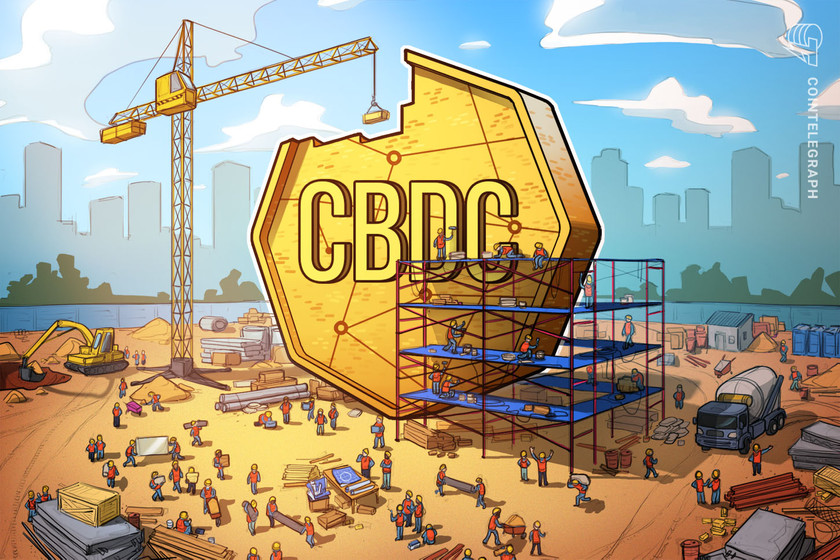
The Federal Reserve Bank of New York’s Innovation Center, or NYIC, announced that it would be launching a 12-week proof-of-concept pilot for a central bank digital currency, or CBDC.
In a Nov. 15 announcement, the New York Fed said the program would explore the feasibility of an “interoperable network of central bank wholesale digital money and commercial bank digital money operating on a shared multi-entity distributed ledger” on a regulated liability network. Banking giants including BNY Mellon, Citi, HSBC, Mastercard, PNC Bank, TD Bank, Truist, U.S. Bank and Wells Fargo will be participating in the pilot by issuing tokens and settling transactions through simulated central bank reserves.
“The NYIC looks forward to collaborating with members of the banking community to advance research on asset tokenization and the future of financial market infrastructures in the U.S. as money and banking evolve,” said NYIC Director Per von Zelowitz.
The proof-of-concept project will test the “technical feasibility, legal viability, and business applicability” of distributed ledger technology, as well as simulate tokens and explore regulatory frameworks. The NY Fed said the project could “potentially be extended to multi-currency operations and regulated stablecoins.”
Related: US lawmaker lays out case for a digital dollar
The launch of the NYIC pilot project followed the center releasing research on its wholesale central bank digital currency program on Nov. 4. The first phase of the CBDC trial, dubbed Project Cedar, tested foreign exchange spot trades to determine whether a blockchain solution could improve “speed, cost, and access to cross-border wholesale payments.”
Federal regulators in the United States have not reached any consensus on whether to launch a digital dollar in the country, but agencies and those in the private sector have been exploring the possibility. Following U.S. President Joe Biden issuing an executive order aimed at establishing a framework on digital assets, some lawmakers questioned what Congress’ role might be in passing legislation in support of a CBDC and how a digital dollar might curtail similar innovations from the private sector.
Read More: cointelegraph.com









 Bitcoin
Bitcoin  Ethereum
Ethereum  Tether
Tether  XRP
XRP  Solana
Solana  Dogecoin
Dogecoin  USDC
USDC  Cardano
Cardano  Lido Staked Ether
Lido Staked Ether  TRON
TRON  Avalanche
Avalanche  Sui
Sui  Wrapped stETH
Wrapped stETH  Toncoin
Toncoin  Chainlink
Chainlink  Shiba Inu
Shiba Inu  Stellar
Stellar  Wrapped Bitcoin
Wrapped Bitcoin  Hedera
Hedera  Polkadot
Polkadot  WETH
WETH  Bitcoin Cash
Bitcoin Cash  LEO Token
LEO Token  Uniswap
Uniswap  Litecoin
Litecoin  Pepe
Pepe  Hyperliquid
Hyperliquid  Wrapped eETH
Wrapped eETH  NEAR Protocol
NEAR Protocol  Ethena USDe
Ethena USDe  USDS
USDS  Internet Computer
Internet Computer  Aptos
Aptos  Aave
Aave  Mantle
Mantle  POL (ex-MATIC)
POL (ex-MATIC)  Cronos
Cronos  Render
Render  Ethereum Classic
Ethereum Classic  Bittensor
Bittensor  MANTRA
MANTRA  Monero
Monero  Tokenize Xchange
Tokenize Xchange  Artificial Superintelligence Alliance
Artificial Superintelligence Alliance  Dai
Dai  Virtuals Protocol
Virtuals Protocol  Arbitrum
Arbitrum